We treat
Tinnitus
Learn more about Tinnitus
What is tinnitus?
Tinnitus, or ringing in the ears, is a personal experience of hearing sounds without any external source. These sounds can vary and include tones such as ringing, buzzing, hissing, humming or even a pulsating sound. Although tinnitus itself is not a disease, it is a symptom of an underlying condition or may be associated with certain diseases. It is important to identify and treat the underlying cause to effectively manage tinnitus.
Tinnitus? Book an appointment today
Jump to section [Show]
What are the causes of tinnitus?
The causes of tinnitus are many and varied:
Hearing damage from prolonged exposure to loud noises can damage the tiny hair cells in the ear, causing tinnitus. Age-related deterioration of the ear’s structure can also be a cause.
Ear problems such as infections or blockages, such as wax buildup, can also trigger tinnitus. Physical injuries to the ear or head from an accident or a blood clot in the brain can also cause this condition.
Some medications, especially in high doses, can cause tinnitus as a side effect. Psychological factors such as stress and anxiety can also worsen or trigger the symptoms of tinnitus.
Finally, tinnitus can be a symptom of certain diseases, such as Meniere’s disease, temporomandibular dysfunction, or other neurological conditions. This range of potential causes highlights tinnitus as a complex disorder with many possible triggers.

Tinnitus and its impact on daily life: A comprehensive guide
What does it mean to suffer from tinnitus?
Tinnitus can have a profound effect on one’s daily life and well-being, which can be overwhelming for those living with the condition.
At night, the ambient silence can amplify the perception of tinnitus, which can disrupt sleep and result in increased fatigue. This in turn can affect the ability to perform daily tasks and reduce quality of life.
Tinnitus can also be distracting and prevent concentration during work, school or social interactions. For some, concerns about tinnitus and the added strain caused by reduced sleep and concentration can lead to stress and anxiety.
Over time, constant tinnitus can lead to feelings of helplessness and isolation, which can trigger depression. Furthermore, tinnitus can sometimes be accompanied by actual hearing loss, which can make communication and participation in social activities challenging.
Overall, tinnitus can seriously affect quality of life, from work to social interactions and the ability to enjoy life’s pleasures.
Tinnitus treatment options
Tinnitus, with its diverse causes, also manifests in diverse forms, indicating a range of treatment options. It is essential to understand this so that the appropriate treatment option can be identified for the specific type of tinnitus.
The most common form is subjective tinnitus, which only the affected person can hear.
There is also objective tinnitus, a rarer form where a doctor or audiologist can hear the sound during an examination. This can be caused by muscle contractions in the ear, blood vessel problems, or problems in the inner ear.
Pulsating tinnitus is characterized by a sound that is synchronized with the heartbeat and may be caused by blood vessel problems or vascular disorders in the inner ear.
Somatic tinnitus arises from tension and problems in the jaw, neck or shoulders, while neurological tinnitus has its cause in the auditory nervous system or brain, often as a result of an injury, infection or neurological disorder.
Finally, acoustic trauma is, for example, the result of noise exposure at work, at a concert, or an explosion.
It is crucial to recognize that the experience of tinnitus can vary in intensity from person to person and can be either temporary or chronic. While there is no universal cure for tinnitus, there are several effective methods that can alleviate symptoms and thus improve quality of life.

Is pulsating tinnitus dangerous?
Pulsating tinnitus can be disturbing, but in most cases is not harmful in itself.
It is important to remember that tinnitus acts as a symptom rather than a disease.
However, some causes of pulsatile tinnitus can be more serious and should receive medical attention. An example of this is a vascular cause, where changes in blood flow in the blood vessels near the ear are the problem. This can be due to factors such as calcifications, stenosis, or blood clots.
Identifying the causes of tinnitus: What causes this irritating condition?
It can be challenging to pinpoint the exact cause of tinnitus, as it varies from person to person. Tinnitus is a complex phenomenon that involves the auditory system, the brain, and several other body functions, such as muscles, joints, and senses.
Some of the factors that can trigger tinnitus include hearing loss, the aging process, ear infections or blockages, side effects from medications, injuries to the ear or head, and various diseases and medical conditions. Stress and anxiety, jaw or neck and shoulder problems, and genetic factors can also be contributing causes of tinnitus.
Identifying and understanding the specific cause is crucial to finding the most effective treatment and relief for the individual.

Treatment methods
Treatment options for tinnitus are many and varied, and it is important that they are tailored to the individual. While it is always ideal to find and treat the cause of tinnitus, there are several effective strategies to relieve symptoms if the cause cannot be identified or removed.
- Sound therapy helps mask the tinnitus sound and promotes sleep and relaxation.
- Cognitive behavioral therapy, or CBT, is also a useful therapeutic approach for changing negative thoughts and reactions, as well as stress, anxiety, and depression associated with tinnitus.
- Additionally, there are tinnitus retreats, which are specialized programs that combine counseling and education to improve the management of tinnitus.
- Medical treatment with certain medications can also relieve tinnitus symptoms, such as antidepressants, anxiety medications, or medications that improve blood flow.
- Neuromodulation, which uses electrical or magnetic stimulation to affect the nerves, can also change the abnormal nerve activities associated with tinnitus.
- The use of earplugs and hearing protection, especially for those exposed to noise, can help prevent further damage.
- A healthy lifestyle with a balanced diet, regular exercise, and limited intake of caffeine and alcohol can also have a positive effect on tinnitus.
- It is also beneficial to seek out support groups where exchange with like-minded people provides an opportunity to share experiences and receive support.
- Relaxation techniques help reduce both physical and mental stress, and healthy sleep hygiene is vital for the overall well-being of the body and mind and the ability to tackle everyday challenges.
Sound therapy, an effective method to alleviate symptoms
Sound therapy, also known as sound treatment, uses soothing sounds such as white noise, nature sounds, music, or sound machines to mask tinnitus sounds. The aim is to distract attention from tinnitus, which can improve sleep quality.
White noise is a constant sound that contains all audible frequencies at equal intensity, a bit like an unstable TV station. This noise creates a consistent background sound that can drown out the tinnitus sound. Alternatively, shower sounds are similar to white noise but have a different character. Some people prefer these sounds as they are perceived as more pleasant. Natural sounds such as the sound of waves, birds chirping, rain or wind can also have a calming effect and help distract from tinnitus.
Tinnitus mask generators: How they work and can help reduce tinnitus
Mask generators have been developed to offer a wide spectrum of sounds to treat tinnitus. The user can choose from a variety of sounds based on personal preferences, as is known from sound therapy. These devices play sound at low to medium volume to mask or attenuate the tinnitus sounds. They work by overlapping the disturbing sounds with soothing background noise, reducing attention to the tinnitus. This helps the brain focus less on the tinnitus, reducing discomfort and irritation and contributing to a better night’s sleep. Masking generators are typically small, portable devices that can be adjusted to suit the individual’s needs.

Stress and Tinnitus
Stress can both trigger and worsen tinnitus. Effective stress management can therefore help reduce tinnitus. There are several ways in which stress can lead to or worsen tinnitus. For example, stress can cause muscle tension, which affects blood circulation in the muscles around the ear and in the neck, shoulder, jaw and facial muscles. These muscles and nerves are connected to the outer and inner ear, and tension or irritation here can trigger or worsen tinnitus.
Furthermore, a disturbed night’s sleep can lead to a state of chronic stress over time. When you are tired and irritated, you are more likely to notice your tinnitus, which can further irritate your nervous system. The body’s response to stress involves increased activation of the sympathetic nervous system, which leads to an increased release of the stress hormone cortisol. This hormone affects both the nervous system and the auditory system, which can worsen tinnitus.
Thus, managing stress is crucial for both preventing and reducing tinnitus, and it is important to find effective methods of managing stress to improve the quality of life for people with tinnitus.
Tinnitus and Neck Tension
Neck and jaw tension can be a source of tinnitus or exacerbate existing tinnitus. Tense muscles in the neck or jaw can affect blood flow and nerve function in the area, which can cause disturbances in the auditory nervous system and lead to tinnitus.
Treatment of tinnitus caused or aggravated by such tension may include stretching exercises, exercise and manual therapy. Further guidance on stress management and ergonomics is also important, as stress and poor posture can exacerbate tension in the neck, shoulders and jaw.
The nerves of the ear play a central role in transmitting sensory information from the inner ear to the brain, where sound signals are processed and interpreted. The vestibulocochlear nerve is particularly central, as it consists of the cochlear nerve, which is responsible for hearing, and the vestibular nerve, which is responsible for balance and spatial orientation.
The cochlea, a spiral-shaped structure in the inner ear, contains hair cells that respond to sound waves and transmit them to the brain via the vestibulocochlear nerve. The nerves of the middle ear are primarily involved in mechanical sound vibrations from the eardrum, contributing to sound transmission and reflex responses to harmful noise.
Central to the auditory nervous system are various parts of the brain that process and interpret sound signals from the auditory nerve, including the auditory cortex and brainstem. Since the muscles of the jaw, neck, head and shoulders are closely connected to the outer and inner ear functionally, an imbalance here can lead to or worsen tinnitus.
Among the muscles of the jaw, the masseter muscle is one of the strongest muscles in the body, which can be treated with massage and stretching. The temporalis muscle is a large muscle in the face and head that sits like a clamshell around the ear. Well-known muscles around the shoulder and neck include the trapezius muscle and the occipital muscle, of which the trapezius muscle extends from the shoulder to the neck and attaches to the edge of the skull, while the occipital muscle is located just below the edge of the skull at the back.

Osteopathic treatment for tinnitus: How does it work?
An osteopath approaches you and your tinnitus from a holistic perspective, which always includes a careful and detailed examination. Through close collaboration with the patient, an individualized treatment plan is explored and designed, tailored to the unique needs of the individual patient. The osteopath has in-depth knowledge of the anatomical structure of the ear, including muscles, blood vessels and nerve supply. This knowledge is used to treat tension and dysfunction, which optimizes the function of the auditory nervous system. This creates the best conditions for the body to achieve balance and activate its own healing process.
The treatment aims to relieve tension in the musculoskeletal system and increase the body’s mobility through manual therapy. The patient is also informed about various strategies and techniques that they can use themselves to support the healing process. By improving the body’s overall function, the treatment can also have an indirect positive effect on tinnitus symptoms, contributing to an improved quality of life and well-being for the patient.
Tinnitus in children
Tinnitus can be a particularly distressing condition for children. The symptoms are similar to those experienced by adults, but children, especially the youngest, may have difficulty expressing or explaining their experience of tinnitus. The causes of tinnitus in children can range from exposure to loud noises such as concert noise, to ear infections and injuries to the ear or head, to tension in the jaw, neck and shoulders, or problems in the auditory nervous system.
Treating the underlying cause of tinnitus is the most important step. Infections may require antibiotics, and children who have been exposed to noise should of course stay away from noisy environments. As with adults, treatment may also include sound therapy or cognitive behavioral therapy, which focuses on teaching children to manage the stress and anxiety that can accompany tinnitus.

Good tips for tinnitus
Here is a guide to various measures you can take yourself to manage your tinnitus and improve your quality of life:
- Avoid triggers: Identify and minimize potential triggers such as noisy environments, loud noises, and intake of caffeine, nicotine, or alcohol.
- Sound therapy: Play soothing sounds such as white noise, nature sounds, or music in the background to distract attention from the tinnitus sounds..
- Relaxation: Consider meditation, deep breathing, or yoga to help reduce stress, which can worsen your tinnitus.
- Support groups: Share your experiences with others and receive support and advice from people in a similar situation.
- Physical activity: Regular exercise helps reduce stress and improves both your physical and mental well-being, as well as your sleep quality.
- Healthy diet: A nutritious and balanced diet strengthens the body’s overall health and well-being.
- Sleep hygiene: Prioritize good sleep by creating a calm and comfortable sleeping environment and avoiding screen time and caffeine close to bedtime.
- Sound machines at night: Use a white noise machine, sound generator, or fan at night to dampen the tinnitus sounds.
- Avoid total silence: Avoid total silence by playing background music or soothing sounds, which can help make tinnitus less noticeable.
- Limit headphone use: Use headphones wisely and keep the volume at a safe level to prevent further damage to your hearing.
- Seek professional help: Consult your doctor for a comprehensive examination and possible referral to an otolaryngologist or audiologist. Osteopaths can also offer treatments that can help relieve your tinnitus.
- By following these recommendations, you can actively contribute to your own well-being and reduce the inconvenience that tinnitus can cause in your everyday life.
Tinnitus research: The latest discoveries and advances in tinnitus treatment
Research into tinnitus is still ongoing, with a focus on exploring the underlying causes of this disorder, including genetics, noise exposure, injuries, and other health conditions. Identifying the exact causes is essential to making treatments more precisely targeted and effective.
Tinnitus is often a multifactorial condition, which has led to the investigation of various combination treatments. This approach includes the use of multiple simultaneous treatment modalities, such as sound therapy, cognitive behavioral therapy, and medication, to enhance positive outcomes for tinnitus sufferers.
Research findings suggest that changes in both the auditory system and the brain may play a role in the development of tinnitus. This has made neuroplasticity – the brain’s capacity to adapt and reshape itself – a critical area of research in tinnitus. A better understanding of neuroplasticity may lead to the development of specific treatments that target brain changes related to tinnitus.
Studies on neuromodulation techniques, which use electrical or magnetic stimulation of the brain or nerve pathways, have also been conducted as potential tinnitus treatments. These techniques work to modify the abnormal nerve activities associated with tinnitus.
Sound therapy has been recognized as a potential treatment for tinnitus symptoms in some individuals. Research has focused on improving the effectiveness of sound therapy by identifying the most effective sounds and frequencies to attenuate and reduce tinnitus sounds. In addition, research continues into various drug treatments, including medications that affect the nervous system and brain activity. Although no specific drug has yet been approved for the treatment of tinnitus, various medical preparations and methods are being investigated.

Learn to manage tinnitus: Natural remedies and lifestyle changes
Avoid triggers
Identifying and eliminating tinnitus triggers is an important step towards relief. Common triggers include loud noises, caffeine, alcohol, and nicotine. By minimizing or eliminating these triggers from your daily life, you can significantly reduce the intensity and frequency of your tinnitus symptoms.
Relaxation methods
Stress management and relaxation techniques play an important role in effective tinnitus management. Practices such as yoga, meditation, and deep breathing can help reduce stress levels that often exacerbate tinnitus symptoms, while also promoting your overall mental and physical well-being.
Support groups
Participating in tinnitus support groups allows you to share your experiences, challenges, and successes with others who are experiencing similar situations. The camaraderie, understanding, and advice of others can be a valuable resource in your journey to managing tinnitus.
Physical activity
Regular physical activity is not only good for your overall health, but also for managing tinnitus. Exercise releases endorphins that naturally relieve pain and improve mood, and also helps improve sleep quality and reduce stress.
Balanced diet
A balanced, nutritious diet can positively impact your overall health and well-being, giving your body the strength it needs to fight and manage tinnitus more effectively. Avoid foods and drinks that can worsen your tinnitus, such as those high in sugar, salt or caffeine.
Sleep
Improving your sleep hygiene is essential for effective tinnitus management. A quiet and comfortable sleeping environment, consistent bedtimes, and avoiding screen time and caffeine before bed can help you achieve better sleep quality.
Professional help
Don’t forget the importance of seeking professional medical help and advice. Healthcare professionals can offer thorough examinations, accurate diagnoses, and access to additional treatments and resources to improve your quality of life despite tinnitus.
Learning to manage tinnitus takes time, commitment, and active effort. By consistently integrating these natural remedies and lifestyle changes into your daily life, you can find the relief and support you need and rediscover the joy of a peaceful and enjoyable life.
Dietary supplements
Ginkgo Biloba Recommendation: Ginkgo biloba ranks highly as one of the most commonly recommended plant-based supplements for tinnitus relief.
Research findings: Despite reports of individual success, there are conflicting scientific findings regarding the effectiveness of Ginkgo biloba. Several studies have failed to demonstrate any significant relief of tinnitus symptoms among those tested. There is an urgent need for further research to strengthen the claim that Ginkgo biloba may be beneficial for tinnitus.
Zinc Recommendation: Zinc is recognized as an important mineral that contributes to cell function and immune system health.
Research findings: Some studies suggest a link between zinc deficiency and tinnitus, especially among the elderly. While zinc supplements may be beneficial for those with a confirmed deficiency, there is a lack of convincing evidence that it is an effective treatment for tinnitus in general.
B Vitamins Recommendation: B vitamins are necessary for healthy nerve function and metabolic health.
Research findings: Research suggests that a deficiency in B vitamins may be related to tinnitus. Supplementing with B vitamins, particularly B12, may help some people, but further research is needed to clearly establish this link.
Magnesium Recommendation: Magnesium is essential for various body functions, including nerve and muscle function.
Research results: Some research projects suggest that magnesium may help prevent hearing damage that can lead to tinnitus, but the existing evidence is still limited.
Conclusion
Although certain supplements have shown promising results for tinnitus, it is crucial to approach this topic with caution. There is a continuing need for thorough and well-conducted clinical studies to confirm the effectiveness of these supplements. As always, it is crucial to consult your doctor before beginning a new supplement regimen to ensure that it does not interact with any of your current medications or health conditions.

Often related injuries
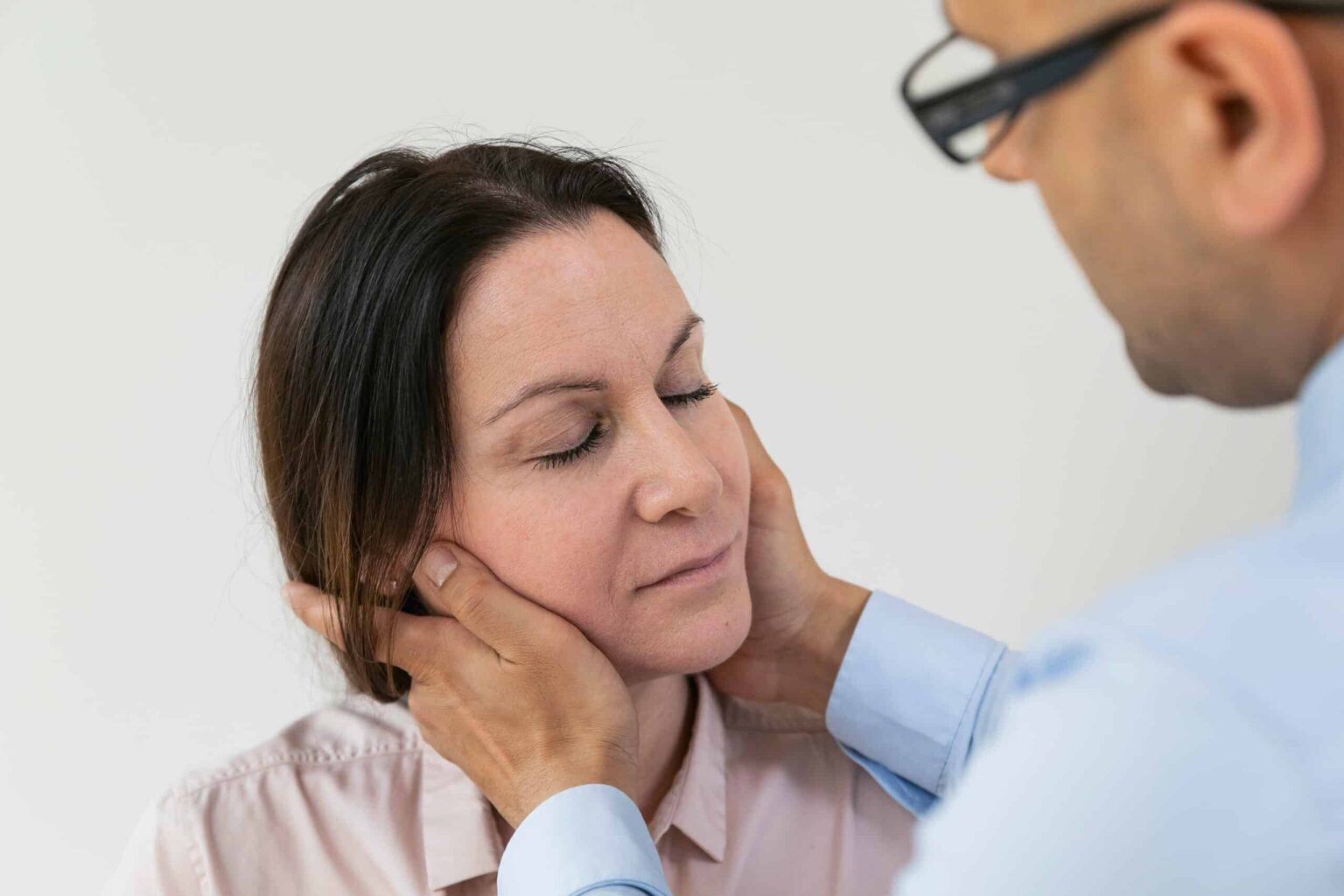
Jaw joint pain
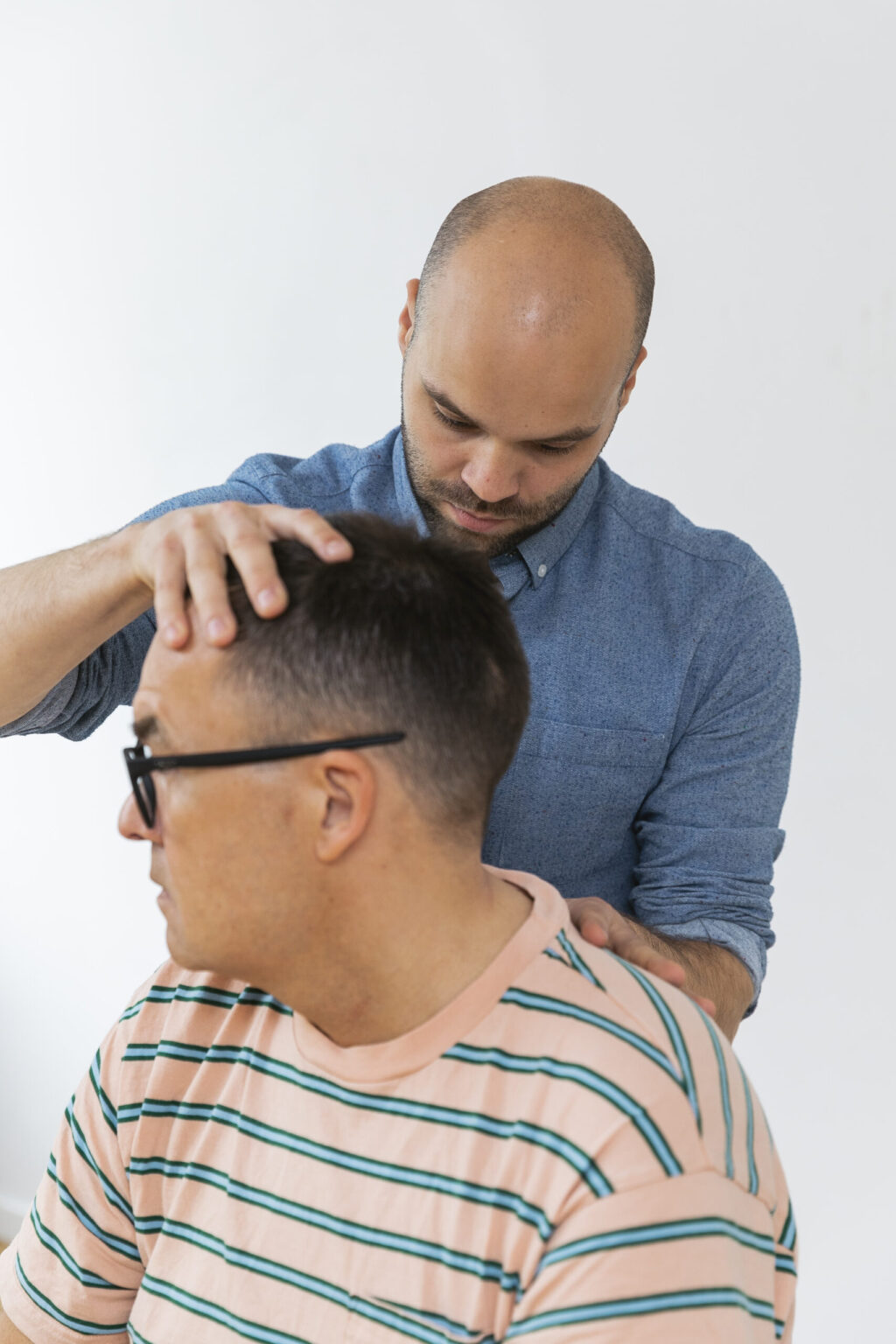
Brain hemorrhage
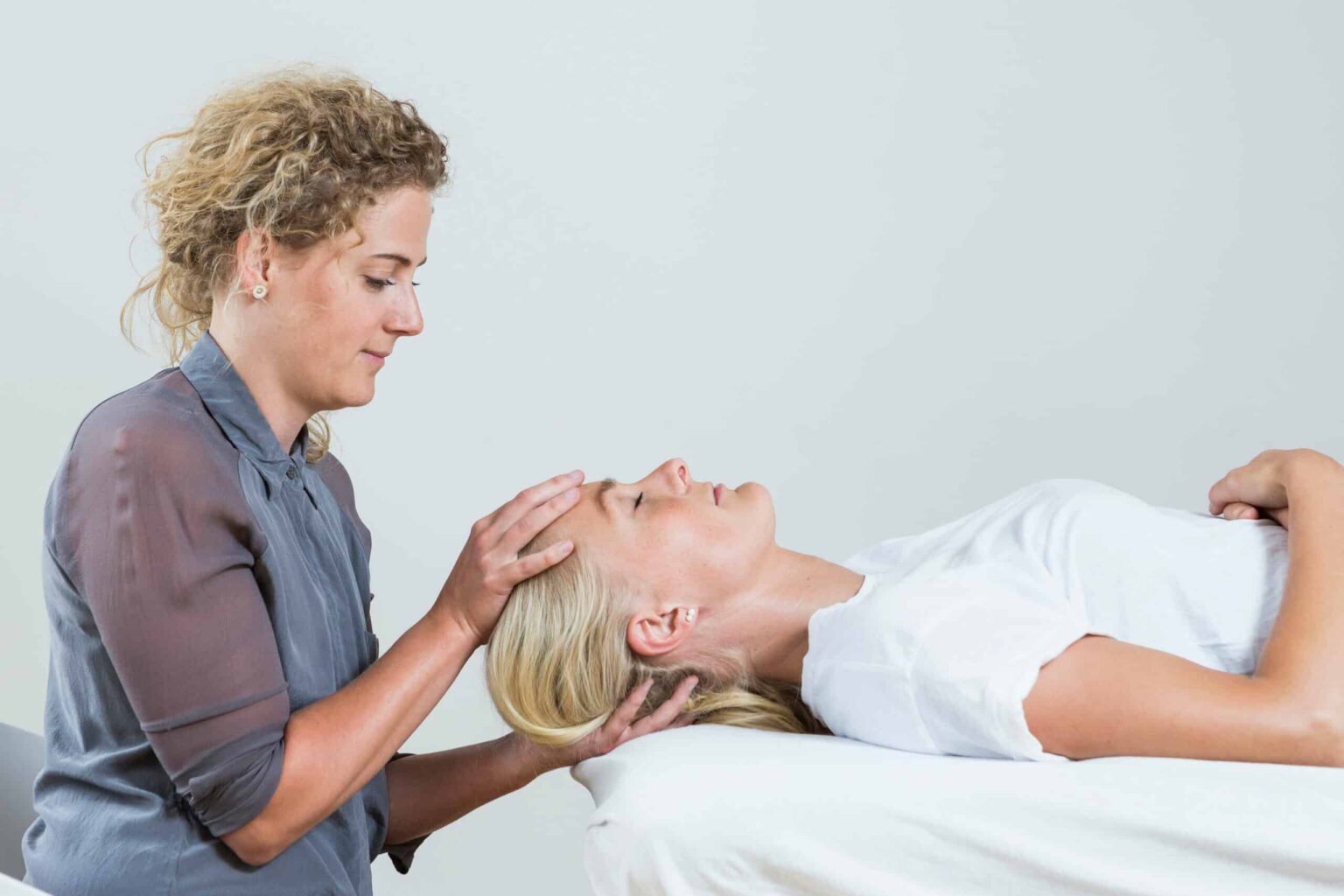
Post-traumatic headache
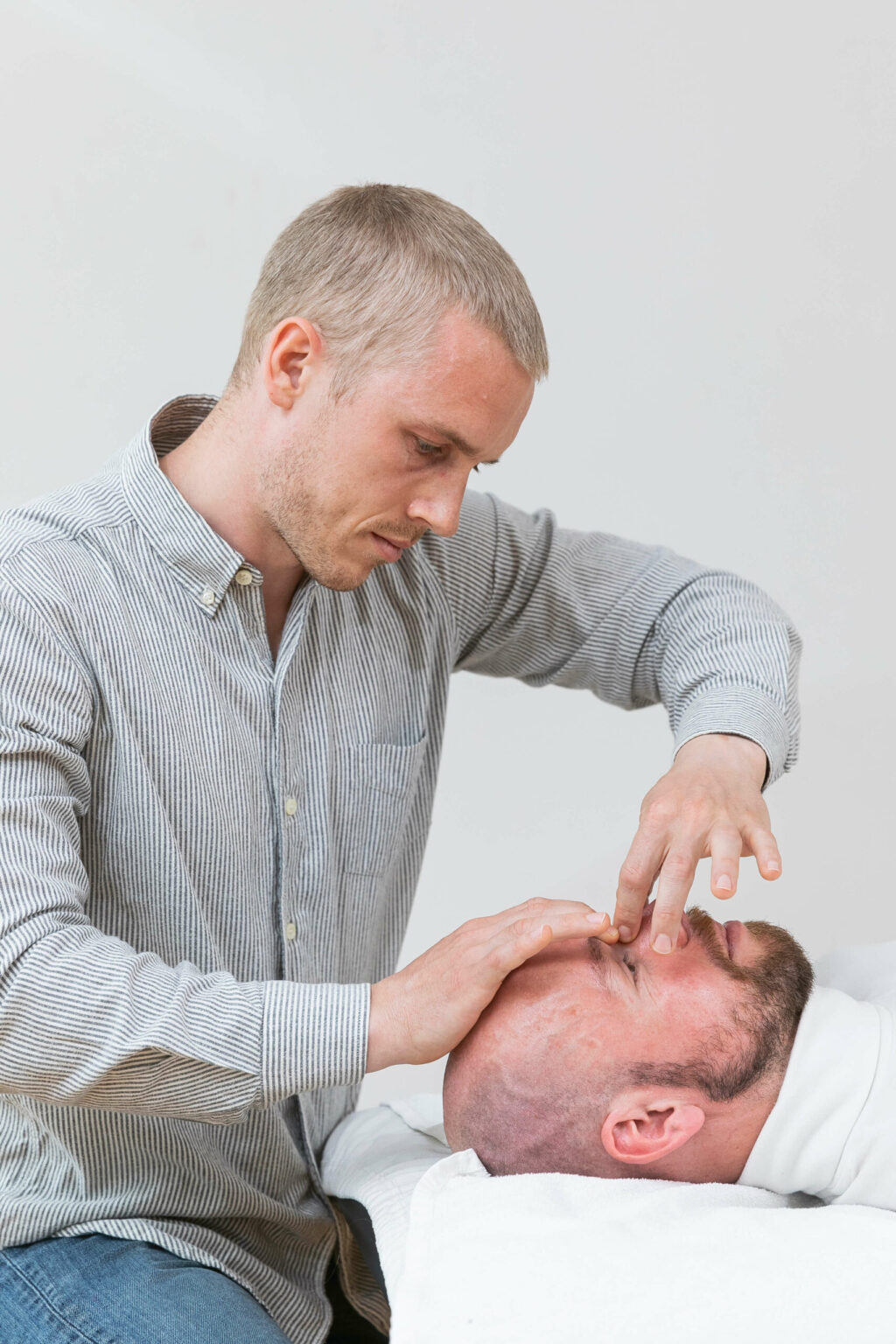
Sinusitis

Tinnitus
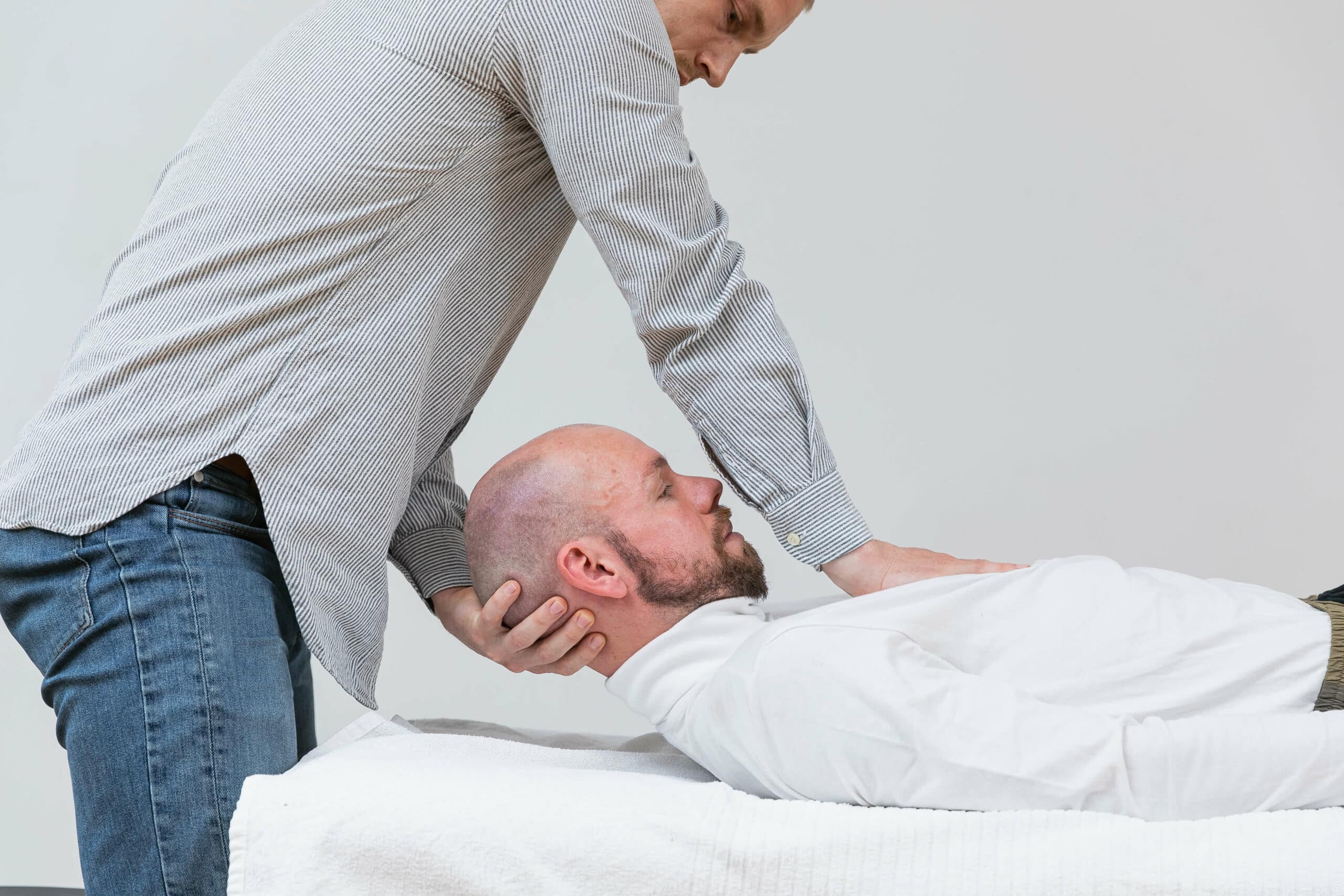
Vestibular dysfunction

Maxillary sinusitis

